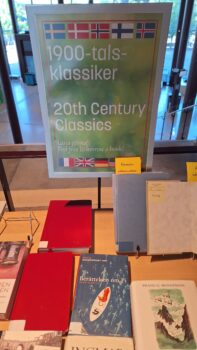**Detta blogginlägg finns även på svenska**
As campus life is slowing down for the summer, here are a few notes regarding Library routines and services during the summer period.
Loan period and opening hours
From 26 May to 30 July, the loan period for books is extended. All standard loan items borrowed during this period will get the due date 20 August, provided there is no reservation on the item, in which case the loan period will be one week as usual.
Library opening hours during summer can be found in the following overview. Please note that Medical Library will be closed from 7 July to 20 July, and Campus Norrköping Library from 21 July to 3 August.
The library stacks at Valla Library have self-service hours only during the summer. LiU students and staff can access the stacks with their LiU card and other users can borrow a card to access the stacks at the library enquiry desk on the third floor in Studenthuset.
The Library’s interlibrary loan service will be closed between 7 July and 20 July, so therefore expect longer processing times of interlibrary loans during the summer.
Library exhibitions
If you are undecided about which books to read this summer, Valla Library provides recommendations of 20th-century classics in a book display on the third floor in Studenthuset. You are also welcome to suggest books that you think should be added.

If you missed the article on DigiMaker, published at LiU’s website in April, you can check it out here: From sewing machines to 3D printing
And don’t miss the research exhibition in Studenthuset in which the Posthumanities Hub combines research and art in an informative and exciting mix.
Looking forward to the autumn, the lecture series Research just around the corner will be back with a new series of presentations of cutting edge research on the theme LiU at 50.
Linköping University Library wish you happy summer!
